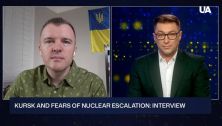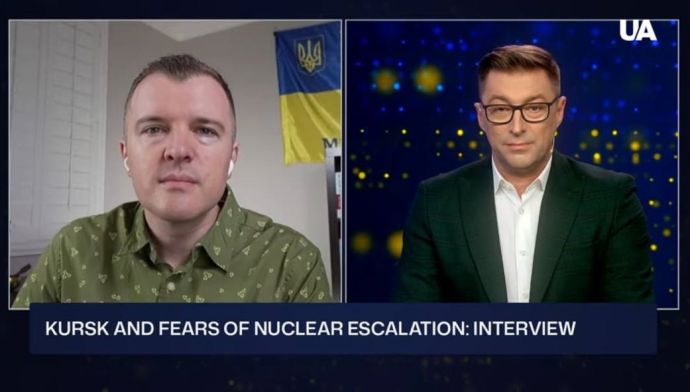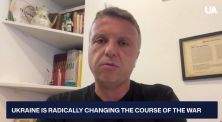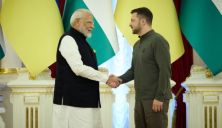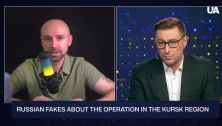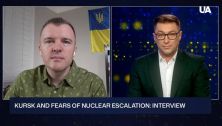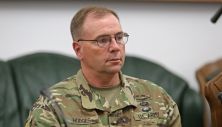What is the impact of Kursk operation? Is there any risk of nuclear escalation? Why hasn’t Putin been defeated yet? Why aren’t there more weapons for Ukraine?
This questions were answered in this interview.
Our guest tonight is Jake Broe, a United States Air Force veteran who served as a nuclear and missile operations officer.
— I’m curious to know—Ukraine needs oil refineries in Russia that has been targeted. I’ve enjoyed your videos a lot, but in terms of efficiency, is targeting oil refineries an effective act of war for the Ukrainian Army?
— Similar to what the Allies did during World War II, going after a nation’s strategic oil reserves is crucial. Militaries run on oil. I think this was a strategy Ukraine devised last winter when they started aggressively striking oil depots and refineries in January. We’re not going to see the full results until this winter. It’s interesting that the Kremlin isn’t releasing data on how their oil industry is currently operating, but we’ll see the impact soon enough.
— Speaking of the Kremlin, Belarusian troops are crowding near the border with Ukraine. Do you know why?
— I’m sure Putin got on the phone and yelled at Lukashenko to move his troops to the border. Lukashenko doesn’t want to attack Ukraine. If he did, he would have done so two and a half years ago. Any Belarusian citizen who wanted to join Putin’s “special military operation” to destroy Ukraine has had two and a half years to do so. Lukashenko is trying to stay alive—he doesn’t want to end up like Gaddafi. Moving troops to the border costs him almost nothing, and he’s happy to do Putin a favor in that regard.
— That makes sense. Regarding recent events in the Kursk region of Russia, can you comment on the strategic importance for Ukraine and its partners?
— There are several aspects. One, creating a buffer zone on the Russian side of the border to protect Ukrainian villages would be a significant strategic gain. Even a 20-30 km buffer would prevent Russia from using artillery to strike Ukrainian towns.
Secondly, Ukraine needs to show tangible results to encourage their supporters and allies to continue lobbying for military aid.
When Ukraine shows progress on the battlefield, it strengthens arguments for additional support.
Lastly, it’s about dispelling the myth of Russia’s nuclear red lines. Currently, Ukrainian forces occupy internationally recognized Russian territory, and yet no one is discussing nuclear weapons. Russia’s nuclear threats are largely bluff, with no real benefit to using such weapons. All restrictions should be lifted, and Ukraine should be allowed to win this war.
— To quote NBC News, “Faced with the ignominy of losing his own territory to the neighbor he had invaded, the assumption was that Putin would scramble the Kremlin’s might to drive out the Ukrainians, even if it meant sacrificing progress elsewhere.” That hasn’t happened. Why do you think that is?
— It’s fascinating to watch the Kremlin change its narrative. They’re now spinning the loss of Russian territory as not a big deal, claiming Russia is so massive that losing some territory is inconsequential.
But that’s the power of a dictator who controls the narrative—reality becomes whatever he wants it to be.
Putin knows that Ukrainian forces in Kursk are not going to be expelled anytime soon. His focus is elsewhere, on capturing more territory within Ukraine before seeking a ceasefire. Putin believes he can still negotiate more territory from the West, but I think he’s miscalculating this time.
— Why hasn’t Putin been defeated yet? Why aren’t there more weapons, and faster, for Ukraine?
—The West is not unified. Neighbors of Russia, like the Baltics, Poland, and Finland, have different opinions than leaders in Berlin, Paris, or Washington. The ultimate goal of my government, the United States, is to prevent nuclear war at all costs.
The fear is that if Russia collapses, it could lead to chaos with nuclear weapons falling into the wrong hands. But we can’t keep giving in to Putin.
Historically, when colonial powers decolonized, Russia managed to hold on to its territories, but that time is running out. We don’t know what will happen six months from now, but we can’t allow Putin to dictate terms anymore.
— I agree with you. The collapse of the USSR didn’t lead to nuclear war or widespread death, so why should we fear Russia’s collapse now? If we don’t act together, there could be a big war in Europe. Do you think the West should deliver more weapons, faster, especially air defense for Ukraine?
— Ordinary citizens in the West must continue to pressure their governments. We’ve seen what pressure can do—leopard tanks, F-16s, and other military aid only came after significant public demand. In the U.S., we’re going to have another debate about funding Ukraine.
Americans who support Ukraine need to keep the pressure on their representatives. We also need to rethink our approach to trade and relations with authoritarian regimes like Russia. We’ve learned that doing business with dictators only strengthens them. We need to stop empowering them and start taking more decisive actions.
